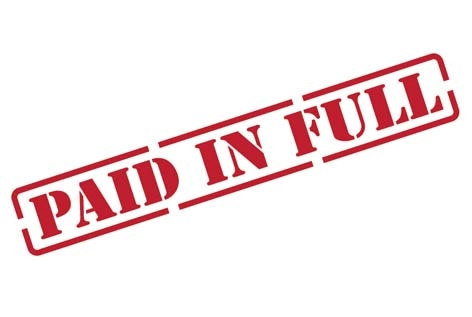Welcome to So California Short Sale Solution. We provide California Short Sales & other foreclosure alternative options to distressed & underwater homeowners in Southern California.
We are based on Yorba Linda California and are your source for Orange County Short Sales, including Yorba Linda Short Sales, Anaheim Short Sales, Placentia Short Sales, Fullerton Short Sales, Santa Ana Short Sales & Orange Short Sales, as well as the rest of Orange County Short Sales.
We also are your source for Inland Empire Short Sales, including Corona Short Sales, Riverside Short Sales, San Bernardino Short Sales, as well as the rest of Riverside County Short Sales & San Bernardino County Short Sales.
For Los Angles Short Sales, we encourage you to visit our sister site, South Bay Short Sale Solutions.
So California Short Sale Solution has a ton of information on Orange County Short Sales and California Short Sales. Please visit our Options page to view a full list of Foreclosure Prevention Options
Orange County Short Sales & California Short Sales. What’s the Deal?
If you owe more against your Southern California home than your home is currently worth in today's market, and are unable or unwilling to pay the difference yourself, you are likely a prime candidate to take advantage of a California Short Sale.
A "Short Sale" is the term to describe the sale of a property in which the leinholder (bank or mortgage holder) allows the sale to proceed even though their payoff is "short" of what is fully owed to them. As real estate values have dropped over the past five to six years California Short Sales have become more common as banks look to minimize their losses that they incur when having to proceed with costly foreclosures. A good California Short Sale is usually a win-win situation for both the homeowner and the lender.
Who Can Do a California Short Sale?
A typical California Short Sale candidate is a California homeowner that has no equity in their home. Additional hardships such as job-loss, reduction in income, divorce, relocation, medical illness, or an interest rate/payment change may help to facilitate the process with your bank. However, your bank's priority is minimizing their loss on the property no matter what the circumstances are.
Most people who we help with California Short Sales fall into these categories:
- They have fallen behind on their mortgage payment and are unable to continue making the payment along with other monthly bills.
- They have not yet fallen behind on their mortgage payment, but are having financial difficulties and are not able to afford mortgage payments going forward.
- They are not behind on their mortgage payment, but need to move and sell their California home for a variety of reasons such as a job transfer, retirement, health reasons, or to move closer to other family member.
- They own a property as a rental, and the rental payments are not enough to sustain the mortgage, property taxes, insurance, and HOA payments.
The Short Sale Process, Step-by-Step
- Step 1: Assembling the California Short Sale Package. This consists of gathering up all of the financial documents that your bank will require that we send to them. This typically includes your last 2 years of tax returns, 2 months of bank statements, and recent paystubs. It also typically includes a letter, written by you, the borrower, explaining the situation. We work very closely with my clients on assembling a suitable package for submission. Timeframe: 1 day to 1 week.
- Step 2: Listing the California Short Sale Property. Preparing the listing paperwork, viewing & pricing your property, and listing the property. Timeframe: 1-5 days
- Step 3: Marketing the California Short Sale Property. We market our California Short Sale listings as aggressively as we do any other listing. Many California Short Sale Agents choose to cut corners when listing California Short Sales, thinking they can still get offers by simply pricing the property low. This strategy typically backfires during the negotiation period with the bank. Timeframe: We almost always get our listings sold (accepted offer) within 30 days.
- Step 4: Negotiating the California Short Sale. After we have received and accepted and appropriate offer, we then submit the offer, along with the California Short Sale Package from Step 1, to the lender. On average, this process typically takes 2-4 months before we ultimately get an approval. Some banks take as little as 30 days. One bank that we work with is now approving our California Short Sales within 2-3 weeks! However, a few of the largest banks still take an average of 3-4 months. We are typically in contact with your bank a minimum of 2-3 times a week during this process. Timeframe: 2-4 months on average.
- Step 5: California Short Sale Approval to Closing: Once approval is issued by the bank we are typically looking at closing a California Short Sale in 3-4 weeks, sometimes less. We make sure that the buyer is moving diligently throughout this process. Timeframe: 30 days.
Costs and Fees Associated with Doing a California Short Sale
All costs, charges, and fees that would normally be paid by the seller at closing in a traditional real estate transaction are paid by the lender in a California short sale. These would include broker commissions, title fees, escrow fees and other customary settlement charges. There typically no settlement costs paid by the Seller in a California Short Sale.
Some California Short Sale Realtors attempt to charge an additional ‘negotiation fee’ in addition to more customary commissions. They try to get the Short Sale Lender, Short Sale Buyer, and Short Sale Seller to pay this fee. We do not charge a separate ‘negotiation fee’ in a California Short Sale as we feel that it is not in the best interest of our California Short Sale Clients. These fees often will prevent buyers from making offers on properties and hold up already potentially lengthy negotiations with your bank.
Short Sales, Foreclosures, 1099’s, and Taxes
Many people have heard that they should not do a California Short Sale because they will receive a 1099 and have to pay taxes on the difference between what they owe and what the property sold for. Yes, you will receive a 1099-C for debt cancellation from your bank. However, the majority of people who short sell are able to exempt themselves from tax liability for various reasons. The most common exemption falls under the Mortgage Forgiveness Debt Relief Act of 2007 for federal income tax. At the state level, there is a similar California Debt Relief exemption. You should consult your tax professional to determine if you qualify for the federal and/or state debt forgiveness exemptions or if you are exempt under other criteria, such as insolvency, when completing a California Short Sale
Many people overlook the fact that they will also usually also receive a 1099 (a 1099-A) if their property is foreclosed upon. In over 95% of default properties, the lender will suffer a greater loss by foreclosing on a home than by participating in a California Short Sale. Thus, even if you have to pay tax on your 1099 amount, you will have a lower 1099 from a California short sale, than you would from a California foreclosure, and therefore will have a lower tax liability from the California Short Sale.
Please visit our Do I Pay Taxes on a California Short Sale, Foreclosure, or Loan Modifications? page for more information on California Short Sales & Tax Forgiveness.
Once again, always consult your tax professional regarding your personal tax consequences from a California Short Sale or a California Foreclosure.
California Short Sales & Your Credit
There are many different components and variables as to how a California Short Sale affects your credit. One very important items that most people do not realize is that the term“Short Sale” does not exist in regards to credit reporting with the three major credit bureaus. California Short Sales are typically reported as “Account Paid in Full settled for Less than Owed”, “Paid as Agreed”, “Paid and Settled” or some other similar verbiage. This is much easier on a credit report than having “Foreclosure” branded for 7-10 years on a report. A typical foreclosure, including late missed payments and the foreclosure hit itself, usually results in a 200-300 point FICO hit.
What typically affects a borrower’s credit score the most during a short sale is not typically the short sale itself, but the missed mortgage payments prior to the sale. Once you fall 30 days behind on your payment your lender is reporting you late to the credit bureaus. Getting 60 and then 90 days late compounds the hit to your FICO. Once you fall behind and have missed payments on your credit, the best way to repair your credit and improve your FICO as quickly as possible is to complete a short sale.
In some instances we are able to negotiate short sales where the homeowner has stayed current on their mortgage payment right through the short sale. When this happens there is a relatively minimal effect on a credit report and score.
All credit experts agree that having a short sale on your credit is always better than having a foreclosure on your credit.
Please visit our Credit Reporting After a California Short Sale, a California Foreclosure, or Bankruptcy page for more information.
It is also a good idea to consult a credit scoring expert regarding the credit ramnifications of a California Short Sale and the credit consequences of a California foreclosure.
Will I Be Able to Purchase a Home Again after a California Short Sale?
The short answer is ‘yes’. As long as your overall credit remains in-tact and that you meet other borrower qualifications (income, debt ratios, etc), a borrower who has a California Short Sale or ‘preforeclosure sale’ (another name for a short sale) is eligible to receive another mortgage after 2-3 years according to Fannie Mae’s guidelines for conforming loans. While each lender has their own guidelines that they may impose on top of the Fannie Mae guidelines, most industry experts agree that you will be able to purchase another home again much sooner by completing a California Short Sale. By comparison a foreclosure will keep you on the sidelines for at least 5-7 years and will follow you forever, even once it drops off of your credit report after 10 years. The Uniform Residential Loan Application Form 1003, used for every mortgage loan application asks “Have you directly or indirectly been obligated on any loan which resulted in foreclosure, transfer of title in lieu of foreclosure, or judgment?” You will have to answer “Yes” to this question for the rest of your life if you have had a foreclosure. If you are able to complete a California Short Sale, you will be able to answer “No” to this question.
Please visit our Credit after Short Sale, Foreclosure, or Bankruptcy page for more details.
Can I Really Get My Bank to Approve my California Short Sale?
In 2007 & 2008 most banks were not as willing to cooperate with short sales and were not setup to handle the short sale process. However, we have seen steady improvement since the beginning of 2009. Now in the sixth year of the housing crisis, we have seen the number of California Short Sales surpass the number of California Foreclosure Sales in 2012.
Banks are now receiving federal dollars as incentives to cooperate with short sales. Banks DO NOT want to foreclose on properties unless they absolutely have to. Banks are not in the business of owning real estate, and incur very excessive costs when foreclosing, including legal fees as well as carrying costs while they own the property. Finally, after the robo-signing scandals of 2010 and the ensuing settlement between the 50 state attorney generals and the 5 largest lenders early in 2012, lenders are even more willing to cooperate with California Short Sales and forgive debt, rather than foreclosing on property.
An asset manager from one of the larger banks recently shared this finding with me: On average the bank loses $50,000 from the time a property goes into default when they have to foreclose on it. While the bank also takes a loss on a short sale, it is usually better financially for the bank to work with you on a California Short Sale than to foreclose on the property.
I’ve missed my First Mortgage Payment. How Long Before my Lender Can Foreclose on Me in California?
In California, once you have missed your first payment the lender can file a Notice of Default after just 30 days. 90 days later they can then file a Notice of Sale providing 25 days notice of the foreclosure. Your lender can technically foreclose as early as just under 4 months from the NOD. In most cases the process will be delayed somewhere along the way and will take slightly longer than what is legally required.
Please visit our California Foreclosure Timeline page for more details.
I believe that maybe I Should Short Sell my California home. How Long Should I Wait and What Should I Do?
As soon as you realize that you can no longer afford to make your payments or keep your California property, you should contact us as soon as possible. Just like going to the doctor to get something checked out, the earlier we “catch it” the more likely we are to have success. Please email us or call 714-989-6176 so that we can arrange for a private, no-cost, no-obligation professional consultation.
I am not sure that I want to do a California Short Sale. I would rather stay in my house. Will my bank let me “buy” my house for its current value, just like they would let another buyer?
Banks typically want a California Short Sale to be an “Arm’s Length” Transaction, between a California Short Seller & a Buyer who have no previous relationship by family, marriage, business or friendship. A short sale between two parties with a relationship that is not disclosed to the bank is considered mortgage fraud and is subject to prosecution by the FBI.
The important thing to remember is that a house is just a building, even if it has served as home for a few years. If you owe more than the house is worth, it isn’t even an asset….it is a liability. We have seen the quality of lives of the families that we have helped with California Short Sales drastically improve after the short sale has been completed and the family has been able to move on with a new financial freedom. In contrast, we have seen people do everything that they can to try to remain in their houses, sacrifice their families financial future and quality of life. Ultimately you will have to make the decision if a California Short Sale makes financial sense for you and your family.
If you would like to set up a FREE, no-obligation, no-pressure, high-level, personal consultation, please contact us by completing the form below or calling us at 714-989-6176.
 Get a free comparative market analysis of your home's worth sent to you with no obligations.
Get a free comparative market analysis of your home's worth sent to you with no obligations. 




